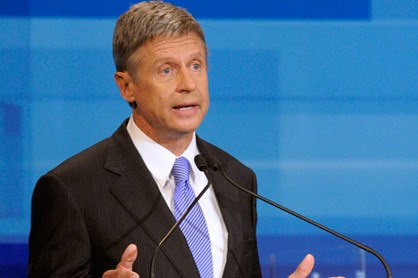After a fraught round of voting in Congress, two large infrastructure bills, one bipartisan and one Democratic, are simultaneously facing heavy opposition from the GOP and a stalemate among factions of the Democratic party.
Another political cycle signals another active period centered around infrastructure in the United States, and how it can be adapted to meet the ever-changing needs of the American people. Infrastructure is a topic that has been consistently discussed in American politics, with the previous Trump Administration attempting to forward its own bill; an effort that failed. Now, the Biden Administration and its allies in Congress are attempting their own bid at an infrastructure bill.
The Infrastructure Investment and Jobs Act, originally introduced as the INVEST in America Act by Representative Peter DeFazio (D-OR) on June 4 2021, is a bill valued in its current form at roughly $1.2 trillion. The act originally included provisions to invest $110 billion primarily in federal aid money for highway, bridge, and tunnel maintenance, construction, and safety, $39 billion in public transit and programs to invest in rail networks managed by the Department of Transportation, motor carriers, funds for research and development purposes, and $21 billion for hazardous material management, specifically superfund sites. $17 billion is earmarked for seaports, with $25 billion dedicated to airports.
The bill was later expanded to include matters concerning access to broadband services, particularly in rural areas, at a cost of $65 billion, alongside a $55 billion investment in clean drinking water and $65 billion for the electric grind, coupled up with expanded physical road infrastructure, alongside the promotion of electric vehicles, with the investment there being roughly $15 billion between vehicles and charging stations. These latter provisions draw their inspiration from a bill that was conceived in the previous session of Congress, named the Moving Forward Act, a bill also sponsored by Representative DeFazio. The Infrastructure Investment and Jobs Act, abbreviated IIJA, has come a long way throughout its existence, passing the House 221-201 on July 1, 2021, and the Senate 69-30 a month later in its currently amended form on Aug. 10, 2021.
It should be noted that 19 Republican senators voted in favor of the Democratic bill marking a moment of bipartisanship in an otherwise divided body, especially when contrasted by the fact only two Republican representatives voted for the bill its original form in the House. According to the Congressional Budget Office (CBO), the bill is set to add $350 billion to the federal deficit.
As alternatives, congressional officials have proposed using left over COVID-19 relief funds, a series of tax raises on those making over $400,000, alongside using savings generated by certain states who ended their COVID unemployment programs early; these are only a few of the means congressional officials have offered to pay for the bill, however the CBO is skeptical of the presented methods.
The last step the bill faces is passage in the House of Representatives; however, the passing of the bill, and its arrival to President Biden’s desk, remain a balancing act. There remains significant House GOP opposition to the bill. House Minority Leader Kevin McCarthy argues that the bill in its nature no longer takes on a bipartisan form, forging the connection between this bill and the $3.5 trillion measure Democrats are currently attempting to pass without Republican support through a process known as budget reconciliation.
The separate $3.5 trillion measure, named the Build Back Better Act and popularly known as the Reconciliation Bill, would include funding for issues related to climate change, education, childcare, and healthcare. House Republicans are officially whipping the infrastructure bill in an effort to ensure party solidarity on the matter. The Democrats themselves also face internal divisions over the bill’s passage—but for different reasons. Moderates and progressives in the party are at odds over the Reconciliation Bill, and progressive Democrats have refused to vote ‘yes’ on the infrastructure bill without having a vote on the more robust Build Back Better Act first.
Due to the divided nature of the House, with Democrats comprising of a slim majority of 220,
and Republicans forming a minority of 212, Democratic House leaders cannot afford to lose many progressive votes on the matter, otherwise the Infrastructure Bill will likely be in jeopardy. Moderate Democrats, after the Infrastructure Bill’s passage through the Senate, wished to hold a vote as early as possible to maintain the momentum, and a vote was set for Sept. 27. In light of the Progressive threat to halt the bill’s progression, voting on the bill was delayed to grant Moderate and Progressive Democrats more time to negotiate on the matters at hand.



